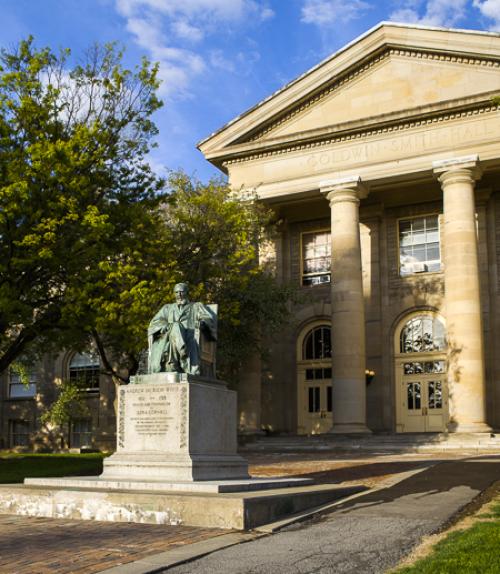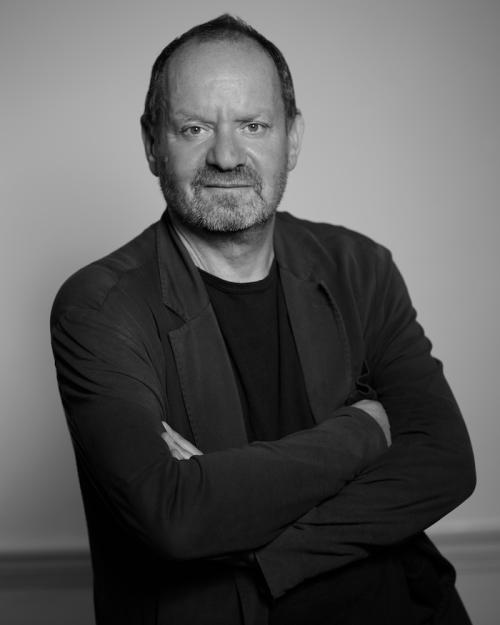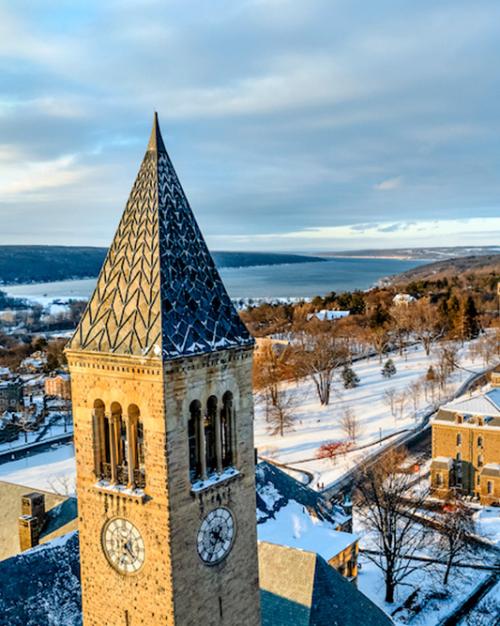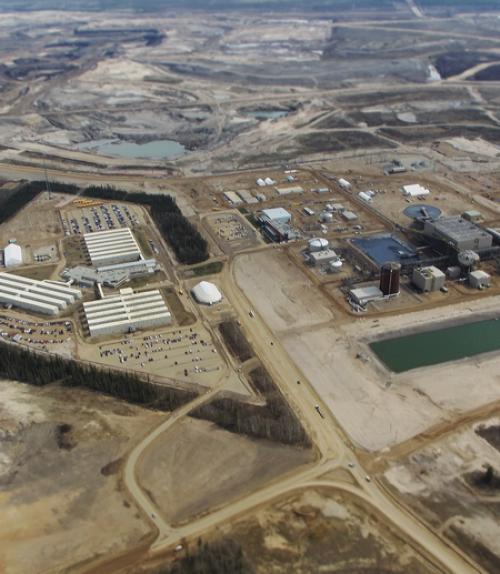Sustainability science is getting a big boost from the humanities. And the social sciences. And the arts.
Cornell’s Atkinson Center for a Sustainable Future has named seven social sciences, humanities and arts (SSHA) fellows for the 2018-19 academic year. The annual fellowships are awarded to faculty from across the university whose work broadens and deepens sustainability research.
The in-residence fellowship provides faculty with teaching leave for one semester and a small research budget. Fellows are expected to reach beyond academia in their work and engage new audiences and partner organizations, such as nonprofits and community groups.
- Laurent Dubreuil, professor of Romance studies, comparative literature and cognitive science: Dubreuil will pursue two complementary projects: building an archive of video testimonials documenting the experiences of individuals who have worked and lived with great apes and created a strong emotional bond with them; and writing a research article that offers a “posthumanist” interpretation for re-classifying chimpanzees and bonobos in the Homo genus. By bridging the humanities and cognitive sciences, Dubreuil will chart a sustainable future for human and nonhuman apes.
- Filiz Garip, professor of sociology: Environmental degradation in Mexico and other Latin American countries is likely to shape future patterns of immigration to the United States, an issue that will only be exacerbated by climate change. Garip will combine ideas from sociological work on migration decision-making with environmental science to understand responses to environmental change in Mexico. As part of a larger collaborative project supported by the Atkinson Center, she will work to predict where the largest movements could occur, and identify ways to help individuals meet environmental challenges without having to leave their homeland.
- Nicholas Klein, assistant professor of city and regional planning: Transportation planners who want to help the poor and also address climate change face tension between economic and environmental sustainability. While providing cars to poor families aids them in accessing jobs, health care and education, and can be an important tool for economic mobility, these cars introduce more greenhouse gases into the atmosphere. Klein will study the environmental effects of car donation programs as well as the benefits to the families that receive these cars to discover how gaining a car changes poor families’ lives.
- Sharon Tennyson, professor of policy analysis and management: Climate change and natural disasters are receiving increased attention in the public policy community, as is the recognition that disasters result from the interplay of human and environmental factors. How to develop public policy solutions to achieve sustainability in the face of growing economic and social costs of disasters? Tennyson is collaborating with social and behavioral scientists and engineers to improve individual and collective responses to disasters by enhancing understanding of the social, behavioral and economic aspects of disaster risk, preparedness and recovery.
- Sara Pritchard, associate professor of science and technology studies: Few humanists and social scientists have studied light pollution, nor have they engaged with scientists and nongovernmental organizations to think critically about it. Pritchard is writing a book, “From Blue to Black Marble: Knowing Light Pollution in the Anthropocene,” that pulls together insights from the environmental humanities, the history of science and technology, and science studies to illustrate how political, cultural, institutional and technical factors shape what is known about artificial light at night and its socio-ecological consequences.
- Joshua Cerra, associate professor of landscape architecture: Climate change threatens many waterfront municipalities and coastal estuaries. Since 2015, the Cornell Climate-adaptive Design studio has linked Cornell students with flood-prone Hudson riverfront municipalities to explore design alternatives for climate-adapted and connected waterfront areas. Cerra will collaborate with the program’s climate outreach partners at the New York State Department of Conservation to reflect on how the program has influenced the potential for municipal action toward climate adaptation and share new knowledge developed through the program via academic articles and reports.
- Lori Leonard, professor of development sociology: Food waste is a pressing environmental issue that is often neglected in the study of agrifood systems. Wasted food means wasted resources, such as land, water, nutrients and labor. Food waste is also a significant source of carbon dioxide that contributes to climate change. Leonard will convene a workshop on food-waste solutions for college campuses and form a national research network that includes campus and community partners to share information, formulate joint research projects, mobilize around legislative actions, and develop a set of “best practices” for food-waste reduction that can be shared and implemented.
This story also appeared in the Cornell Chronicle.




